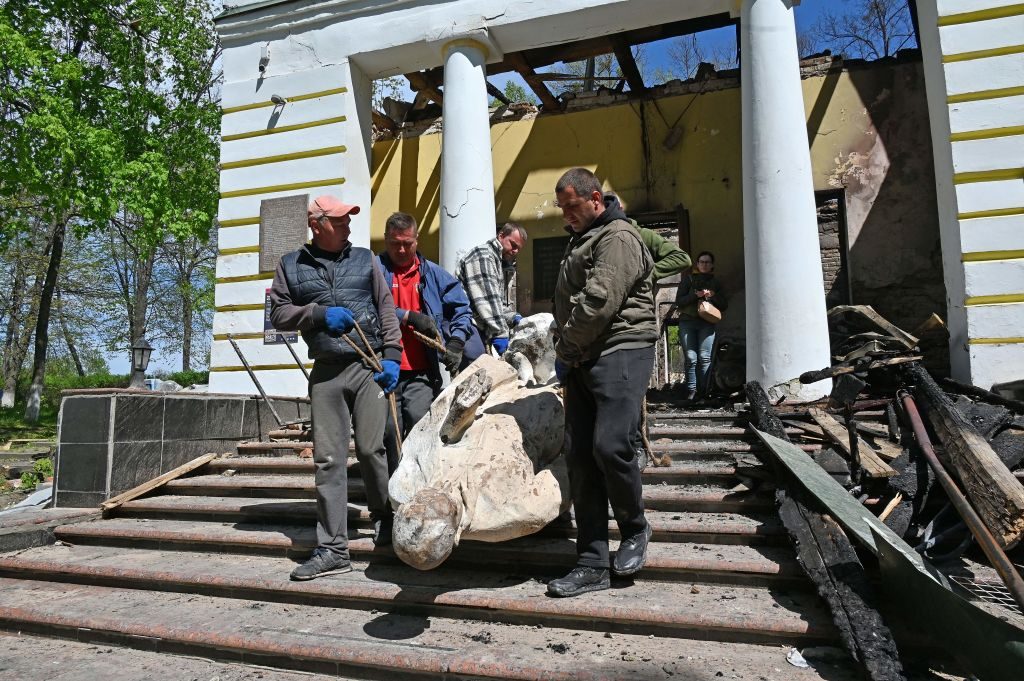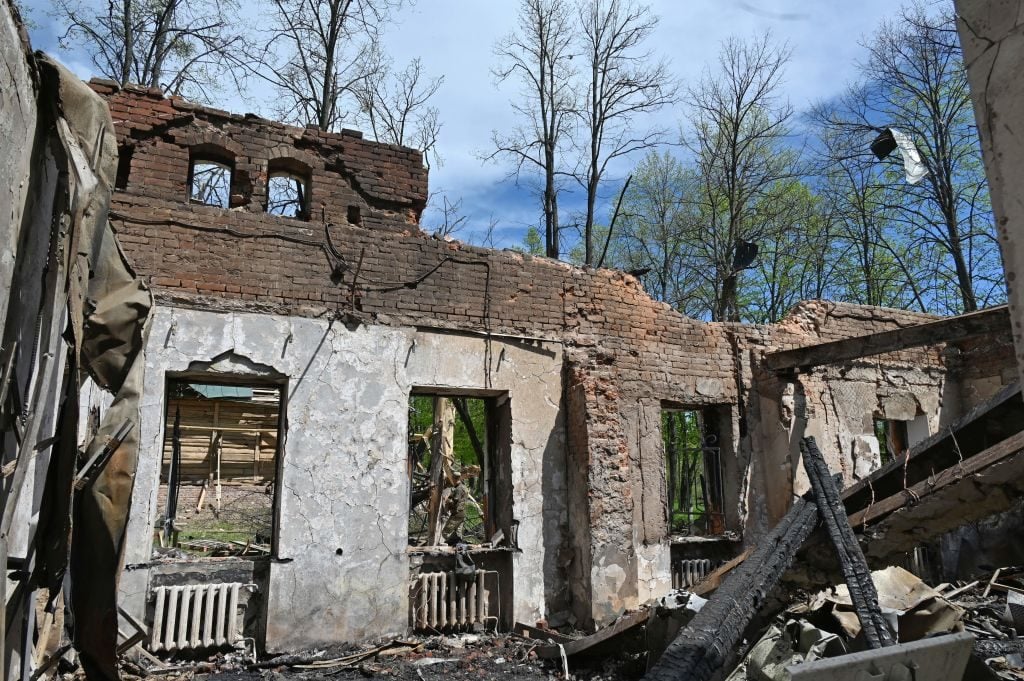Politics
Russian Forces Have Destroyed Nearly 200 Ukrainian Cultural Heritage Sites, President Zelensky Says
The latest site to fall was the historic home of poet-philosopher Hryhorii Skovoroda, razed by a recent artillery strike.

The latest site to fall was the historic home of poet-philosopher Hryhorii Skovoroda, razed by a recent artillery strike.

Taylor Dafoe

Late last week, the historic home of 18th-century Ukrainian poet and philosopher Hryhorii Skovoroda was destroyed by a targeted Russian artillery strike.
The news was announced on May 7 by Ukraine President Volodymyr Zelensky in his daily video address. “Last night, the Russian army deployed one of its missiles to destroy the Hryhorii Skovoroda Museum in Kharkiv Region,” he said. “A missile—to destroy a museum.”
Zelensky said Skovoroda “taught people what a truly Christian life might look like and how a person might come to know” oneself. “It looks as if museums, the Christian outlook on life, and self-knowledge are all threats to contemporary Russia,” he added.
Zelensky said that Russian forces have damaged or outright destroyed nearly 200 cultural heritage locations since the start of the occupation in February—the Kuindzhi Art Museum and the Babyn Yar Holocaust memorial complex in Mariupol among them. Ukrainian officials also claimed that Russian troops have looted more 2,000 artworks from cultural institutions in the port city.
Unesco, for its part, estimates that 127 culturally significant sites throughout Ukraine have been damaged in the last two-and-a-half months, including 54 religious buildings, 15 monuments, and 11 museums.

A photograph shows the destroyed building of the Hryhoriy Skovoroda National Literary Memorial Museum in the village of Skovorodynivka, in Kharkiv Region, on May 7, 2022. Photo: Sergey Bobok/AFP via Getty Images.
The strike on the Skovoroda museum, which was located in a small, non-militarized village outside of Kharkiv, appears to be part of a larger calculated attack on Ukraine’s history. This year marks the 300th anniversary of the birth of Skovoroda, an important figure in the country’s cultural evolution.
The incident recalled a previous Russian attack on a monument to Taras Shevchenko, considered to be the godfather of the modern Ukrainian language. The statue, located in the small town of Borodianka outside Kyiv, was hit with gunfire from occupying Russian troops, according to CNN.
In February, Russian soldiers burned the Museum of Local History in the town of Ivankiv, located roughly two hours northwest Kyiv. Lost in the attack were 25 paintings by famed Ukrainian self-taught artist Maria Prymachenko.
En date du 9 mai, l’@UNESCO confirme que 127 sites ont été endommagés en ?? depuis le 24 février: 54 édifices religieux,11 musées, 26 immeubles historiques,14 immeubles dédiés aux activités culturelles,15 monuments et 7 bibliothèques. Plus d’information ➡️ https://t.co/4vvTFXEABG pic.twitter.com/6PMqv1xFWH
— UKR Mission to UNESCO (@UKRinUNESCO) May 10, 2022
“Each day of this war, the Russian army does something that leaves you speechless,” Zelensky said. “Targeted attacks on museums—this wouldn’t cross even a terrorist’s mind. But this is the army that’s waging war on us.”
In a post on Telegram, the governor of Kharkiv, Oleh Synyehubov, wrote: “The occupiers can destroy the museum where Hryhoriy Skovoroda worked for the last years of his life and where he was buried. But they will not destroy our memory and our values!”